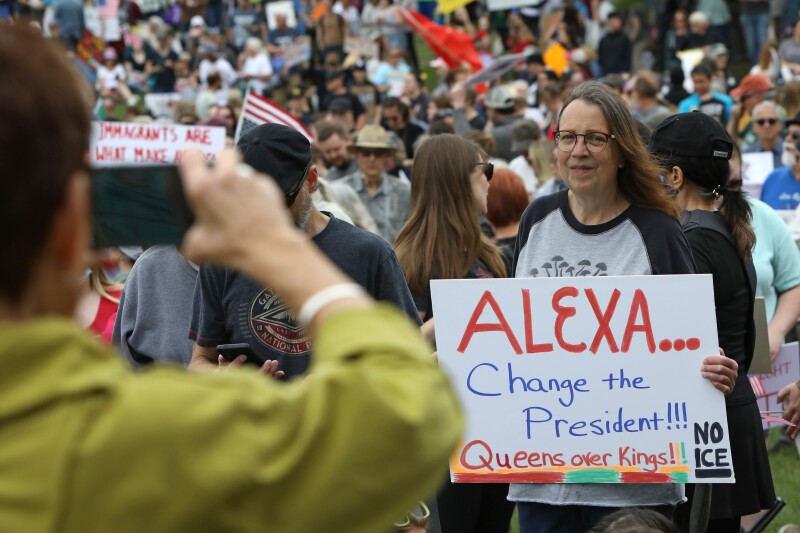Protests organized under the banner of “No Kings” are set to take place this weekend across North Dakota, with thousands expected to gather in cities including Fargo, Bismarck, Bottineau, Devils Lake, Dickinson, Grand Forks, Jamestown, Minot, Valley City, and Williston. These demonstrations have drawn significant political commentary, particularly from Republican leaders, who are framing the events in a contentious light.
Minnesota Congressman Tom Emmer, the House Majority Whip, has characterized the events as a manifestation of what he calls the “terrorist wing of the Democratic Party.” Similarly, House Speaker Mike Johnson has labeled the gatherings as “hate America rallies.” Treasury Secretary Scott Bessent went further, suggesting that the protests represent the extreme left of the Democratic Party. Additionally, Texas Senator Ted Cruz announced plans to introduce federal legislation aimed at empowering law enforcement to treat these protests as if they were organized crime.
In response to the planned demonstrations, Texas Governor Greg Abbott described them as “planned antifa-linked demonstrations,” and has called for military readiness to address potential unrest. Other Republican-led states have indicated they might consider similar measures.
While North Dakota’s Republican leadership has generally maintained a more moderate stance, the rhetoric emanating from national figures could influence public perception in the region. There is a risk that residents may view these protests as threatening rather than as expressions of democratic rights.
As the weekend approaches, it is crucial to remember that the individuals participating in these protests are not outsiders or extremists. They are local residents—business owners, neighbors, and fellow citizens—who are expressing their discontent with the current state of affairs.
The “No Kings” protests have sparked discussions about the role of organized demonstrations in American political life. Many see parallels between current protests and those organized by right-wing groups during President Barack Obama‘s administration, including the Tea Party rallies, which were also met with accusations of extremism.
The significance of these gatherings lies in the exercise of First Amendment rights. While some attendees may express controversial or offensive views, the essence of the protests is rooted in a desire to voice dissatisfaction with political leadership. It is essential to distinguish between the actions of individuals and the collective expression of a community’s frustrations.
Critics may claim that the protests could lead to unlawful behavior. Yet, it is important to recognize that large gatherings often attract a diverse array of participants, and organizers cannot control every action taken by individuals. If any demonstrations do escalate into violence, accountability should be based on facts and evidence rather than preemptive labeling.
As the protests unfold, it is vital to approach the situation with a balanced perspective. The demonstrators are not enemies; they are fellow North Dakotans and Americans exercising their right to protest. Acknowledging this shared humanity can foster a more constructive dialogue between opposing viewpoints.
In summary, as the “No Kings” protests occur this weekend, participants and observers alike are encouraged to remember that dissent and disagreement are integral to the American democratic process. The ability to voice concerns peacefully is a cornerstone of civic engagement, and recognizing the humanity in all involved can help bridge divides rather than deepen them.
